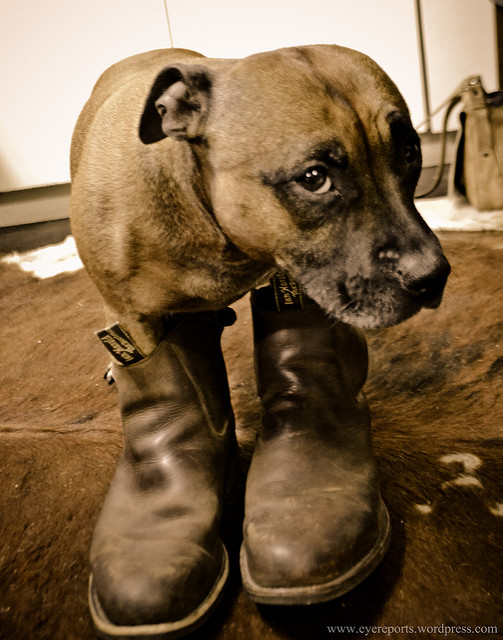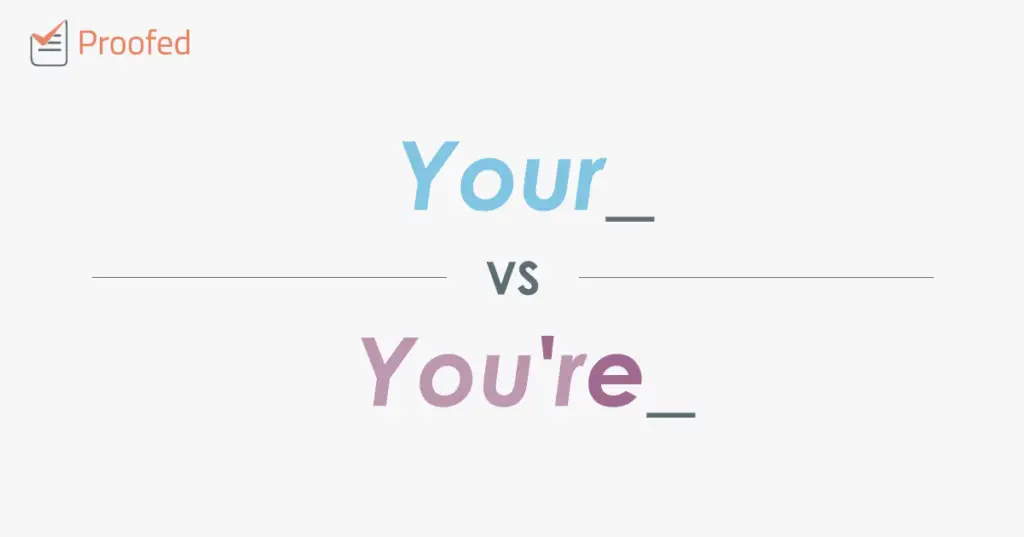The words “your” and “you’re” are so commonly confused (especially online) that it has inspired memes. And in the face of memes, it would be easy to give up, leave social media behind, and accept that good spelling and grammar have no place in our crazy, modern world.
But no! We are proofreaders. Correcting spelling and grammar is what we do! So even if we are destined to drown under wave after wave of typos, we will stand, like Cnut, and resist the tide.

All of which is an overly dramatic way of saying that, today, we’re looking at “your” and “you’re.”
Your (Possessive Adjective)
“Your” is a second-person possessive adjective (or possessive determiner). We use it when something belongs to a “you”:
Your dog is chewing my boot.
Here, “Your” shows that the dog belongs to the person we’re speaking to. Other possessive adjectives include “my,” “our,” “his,” “her,” and “their.”

(Photo: gomagoti/flickr)
You’re (Short for “You Are”)
The term “you’re” is actually a contraction of two words: “you” and “are.” It would be used in a sentence as follows:
You’re wearing tasty boots. = You are wearing tasty boots.
Find this useful?
Subscribe to our newsletter and get writing tips from our editors straight to your inbox.
The apostrophe in this term shows us there are letters missing. Keep in mind that contractions should not be used in formal writing (e.g., a college paper). To ensure a formal tone, write “you are” instead.
Your or You’re
Despite looking similar on paper, these terms have very different uses. On the plus side, this makes it easier to tell the difference. If you’re not sure which term to use in a sentence, though, see how it sounds with “you are” in it. We can illustrate this with the example used for “your” above:
You are dog is chewing my boot.
This is very obviously wrong, so we know it should be “your” instead. Remember:
Your = A second-person possessive adjective
You’re = Short for “you are”



